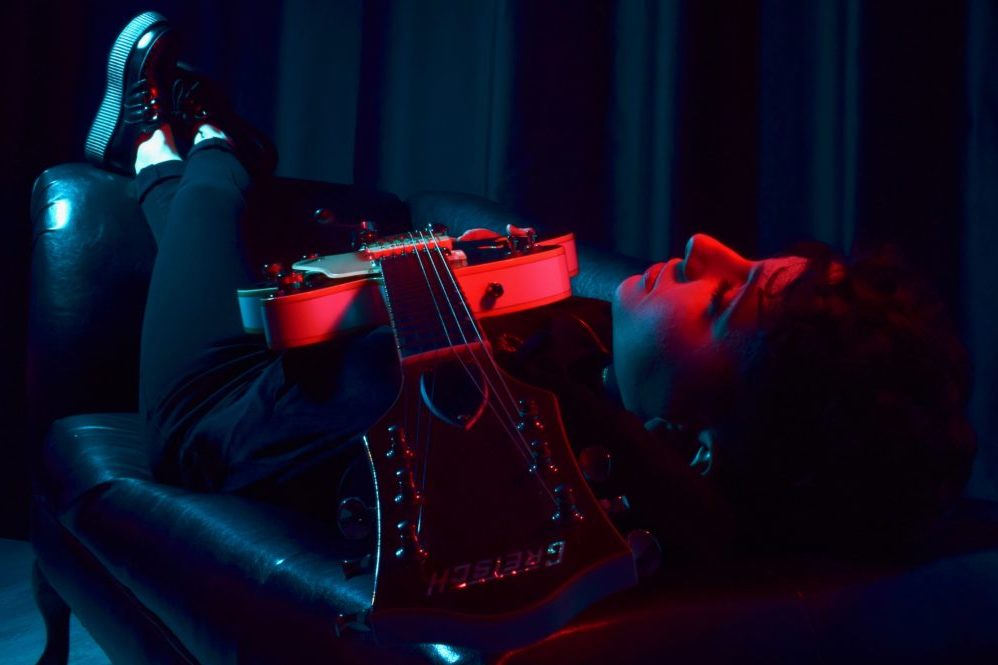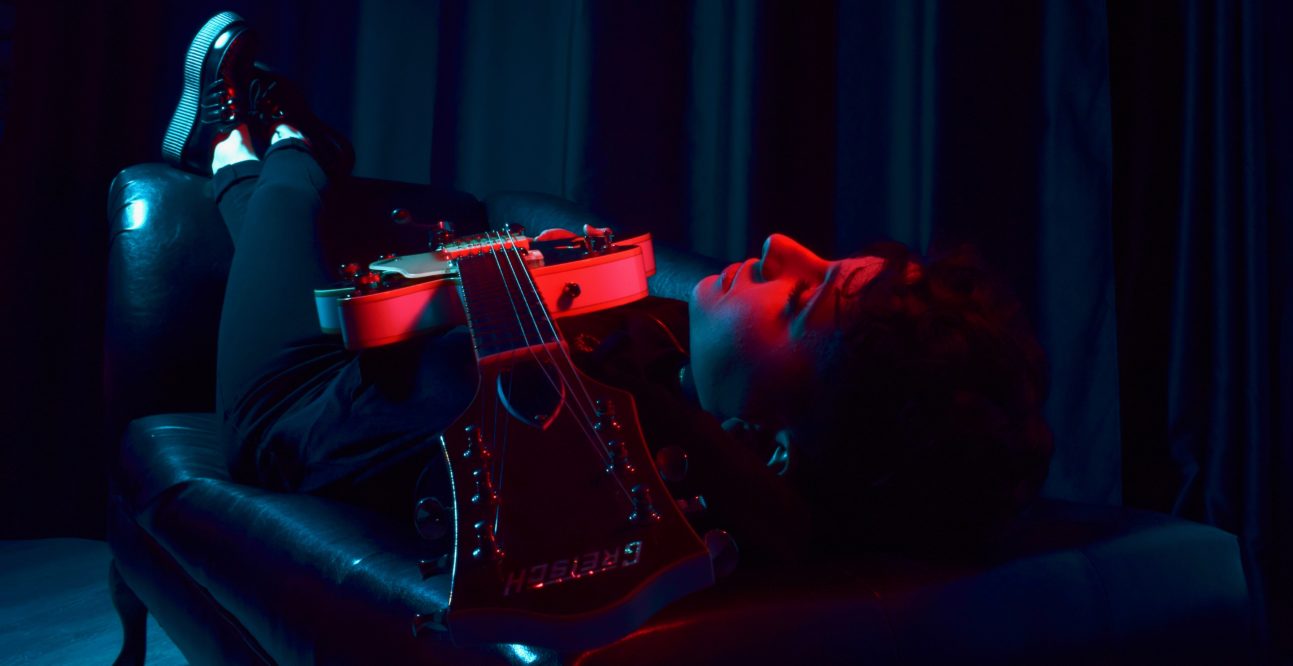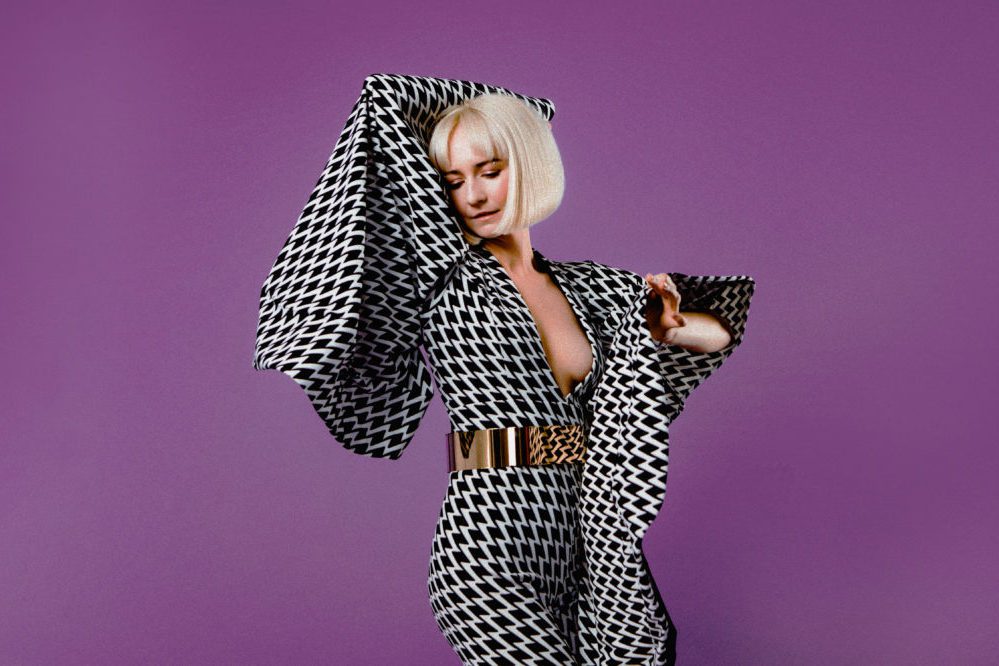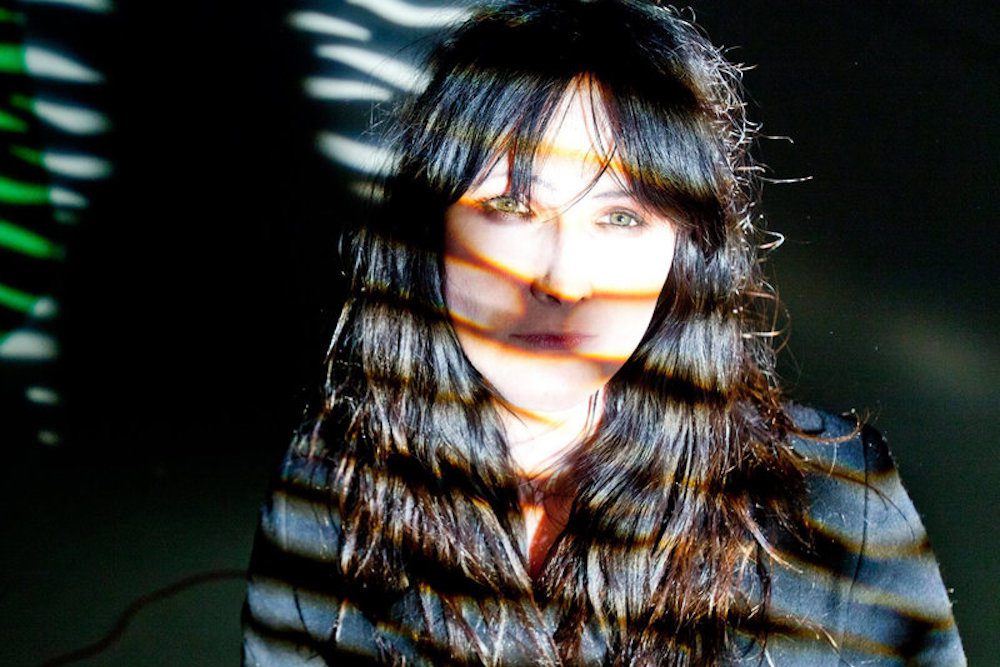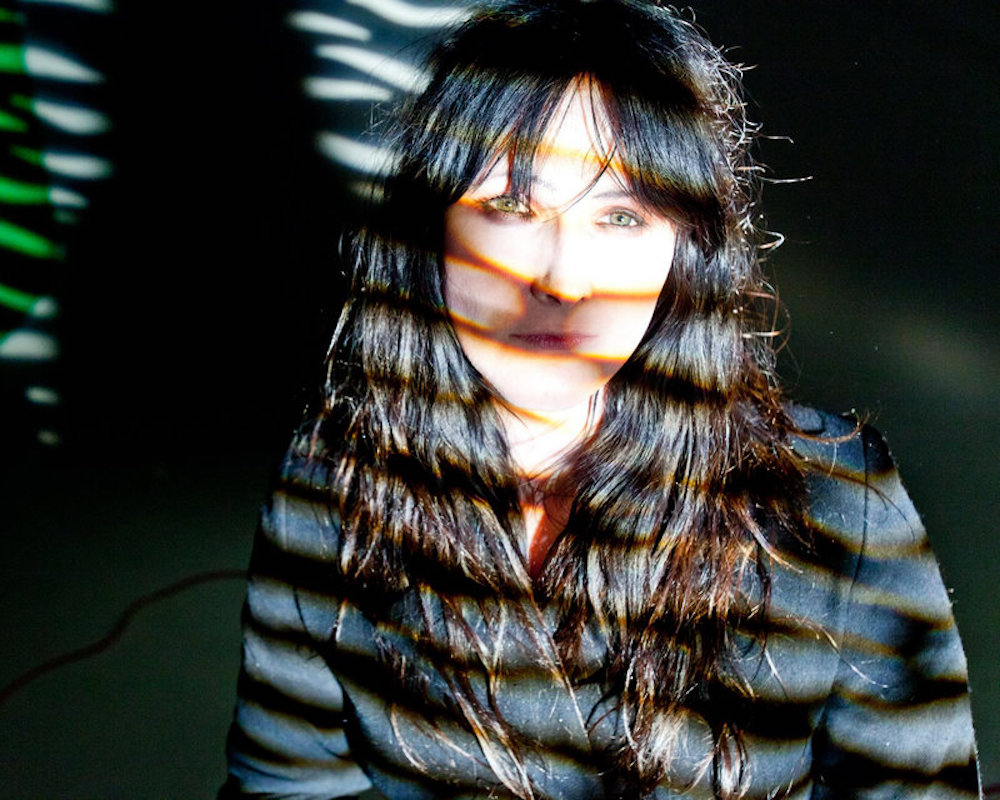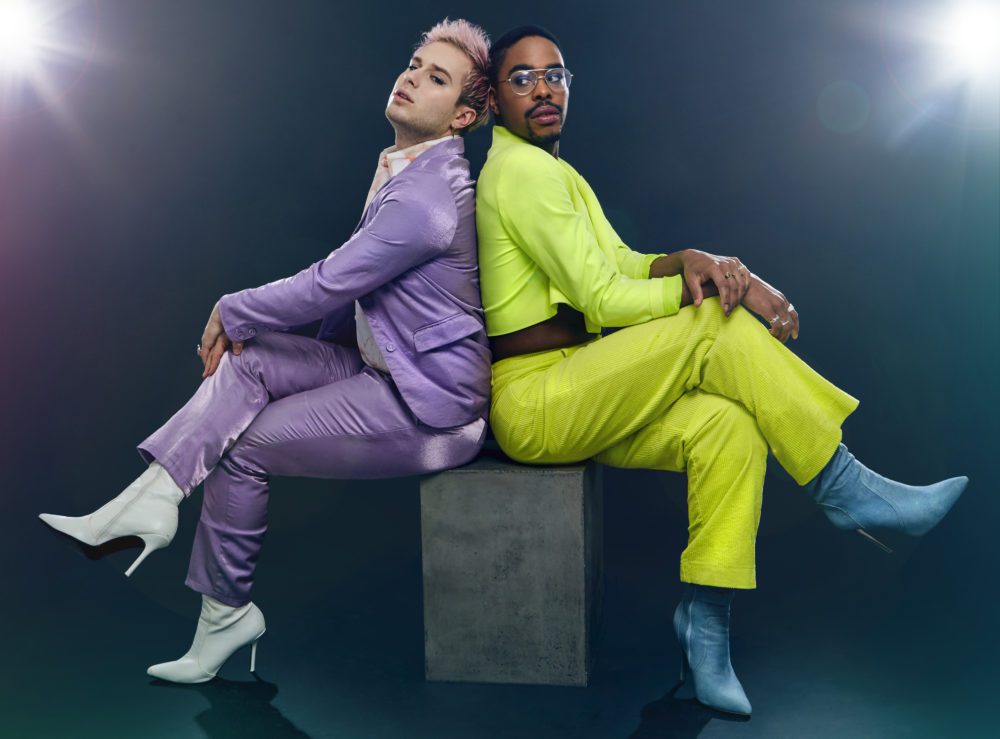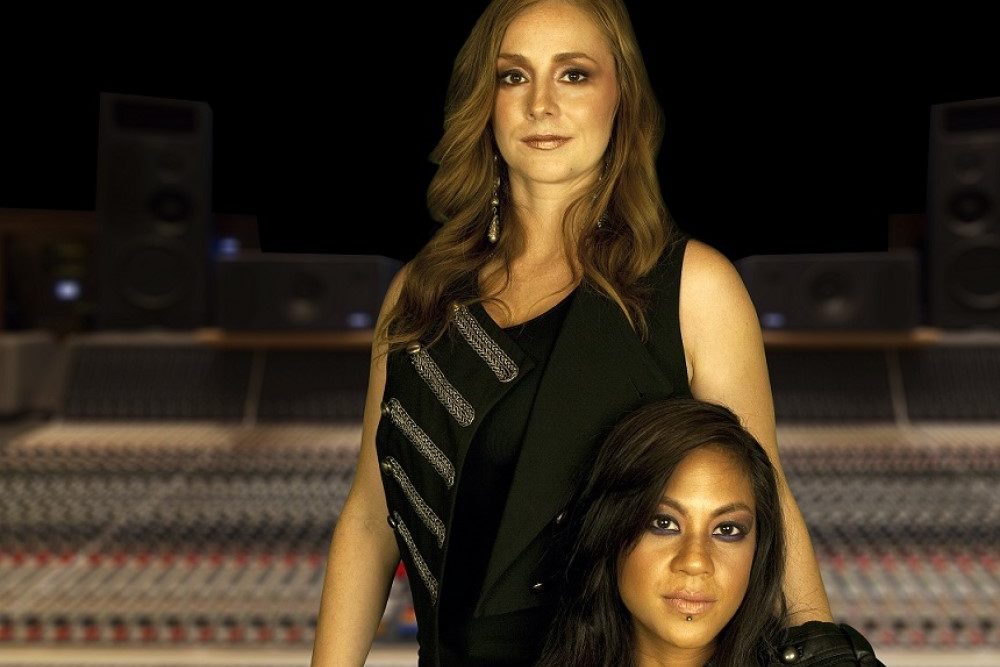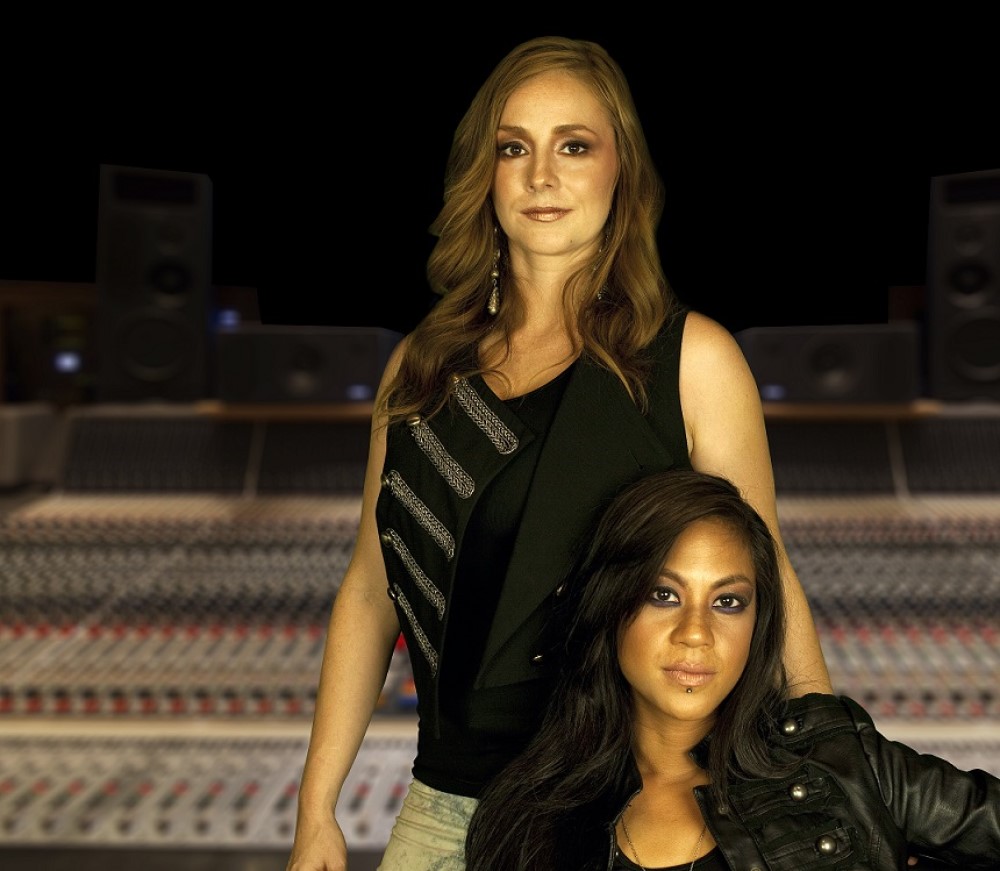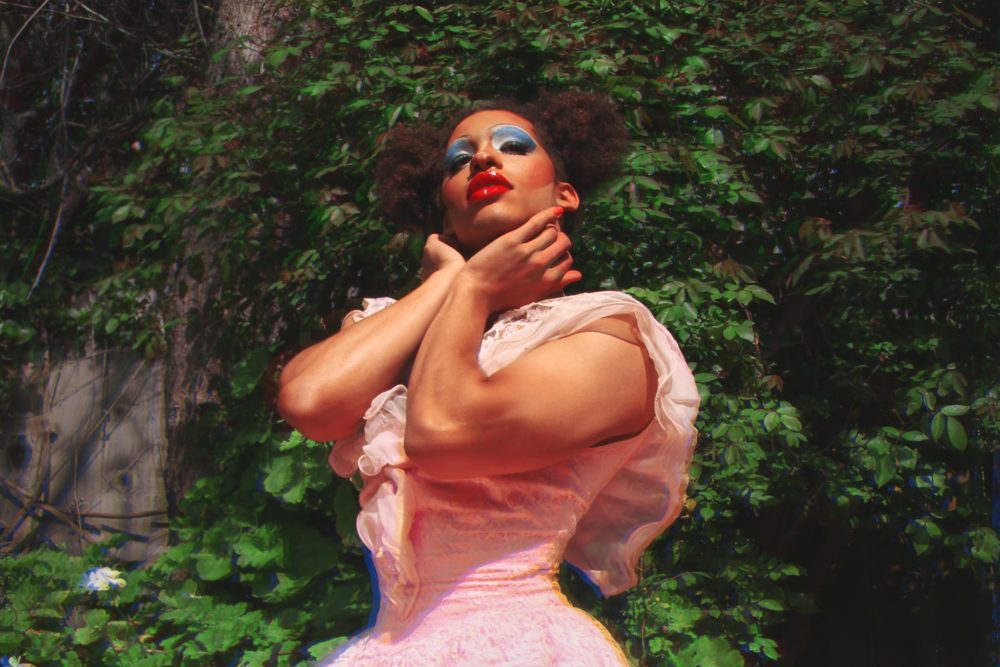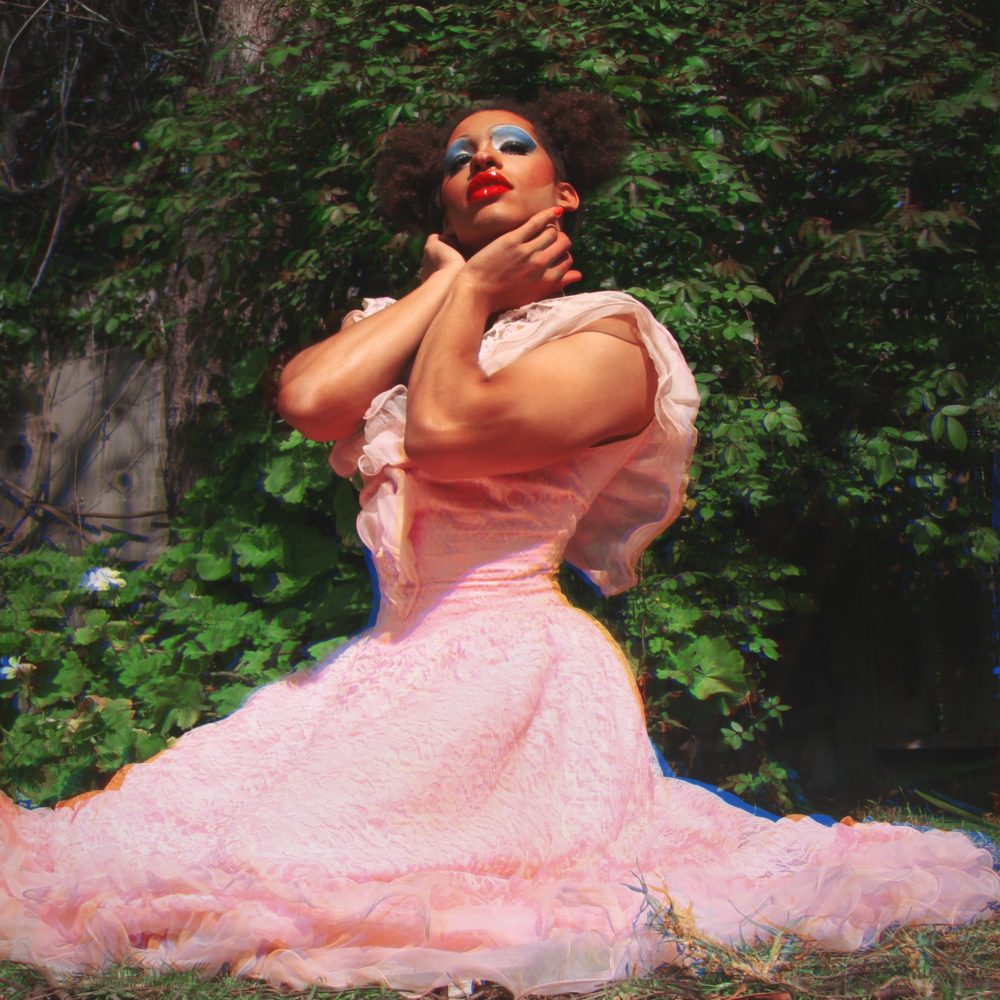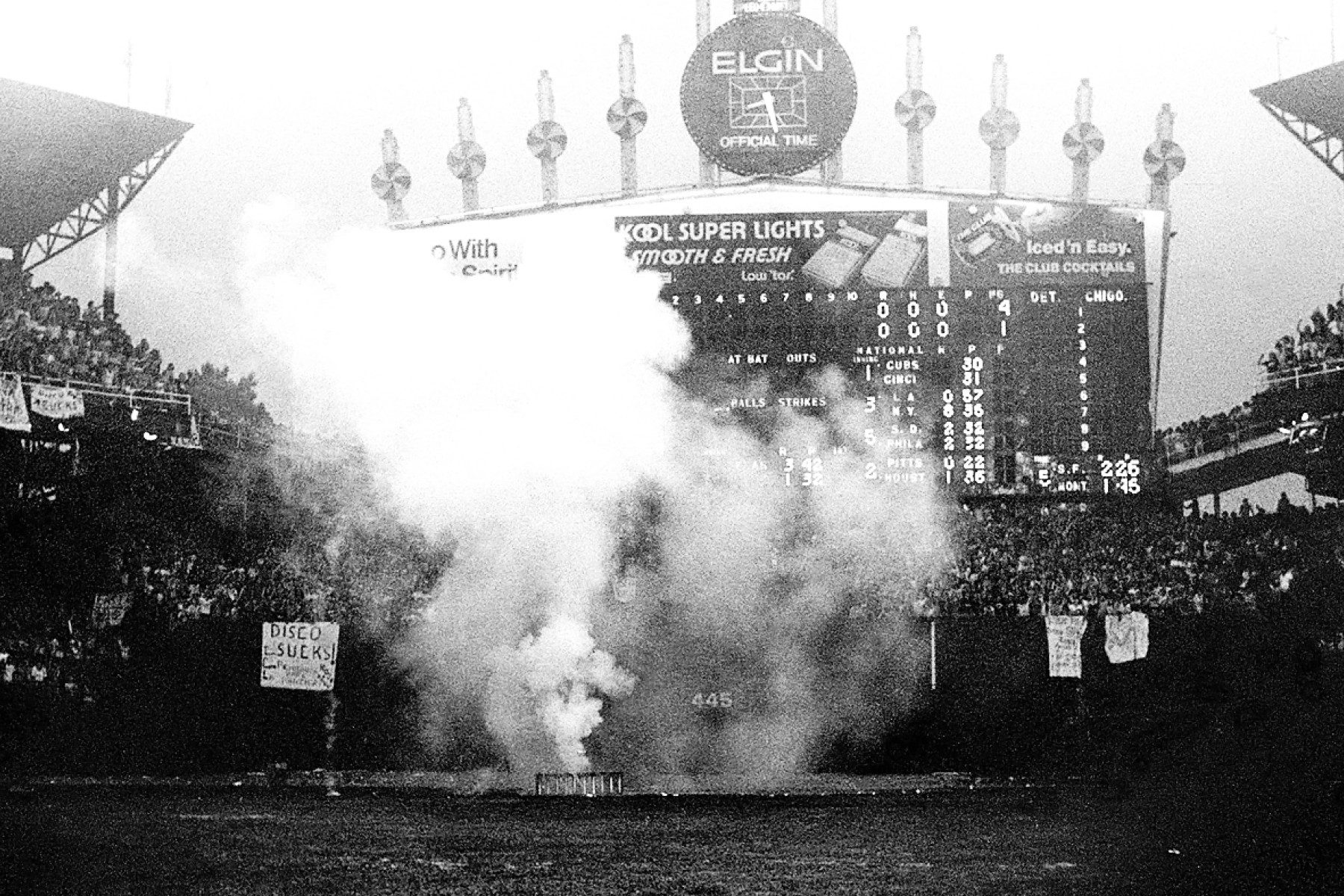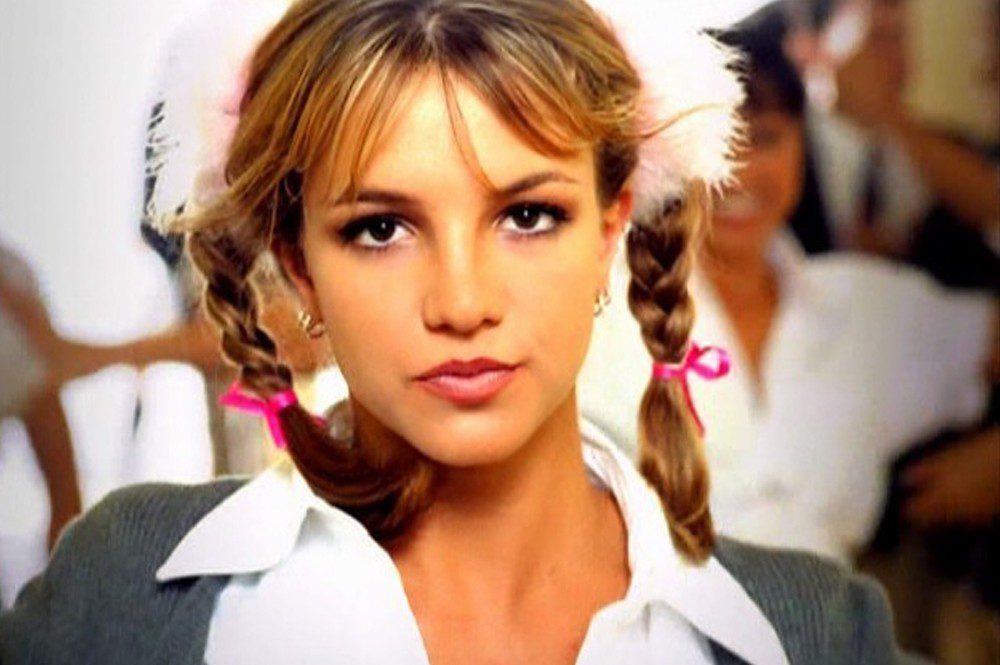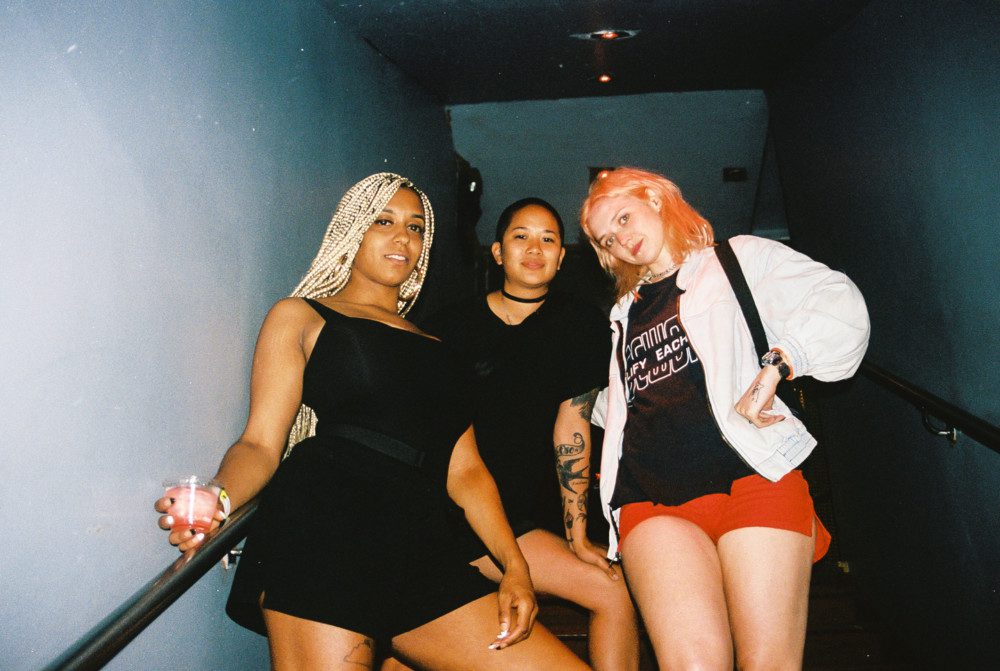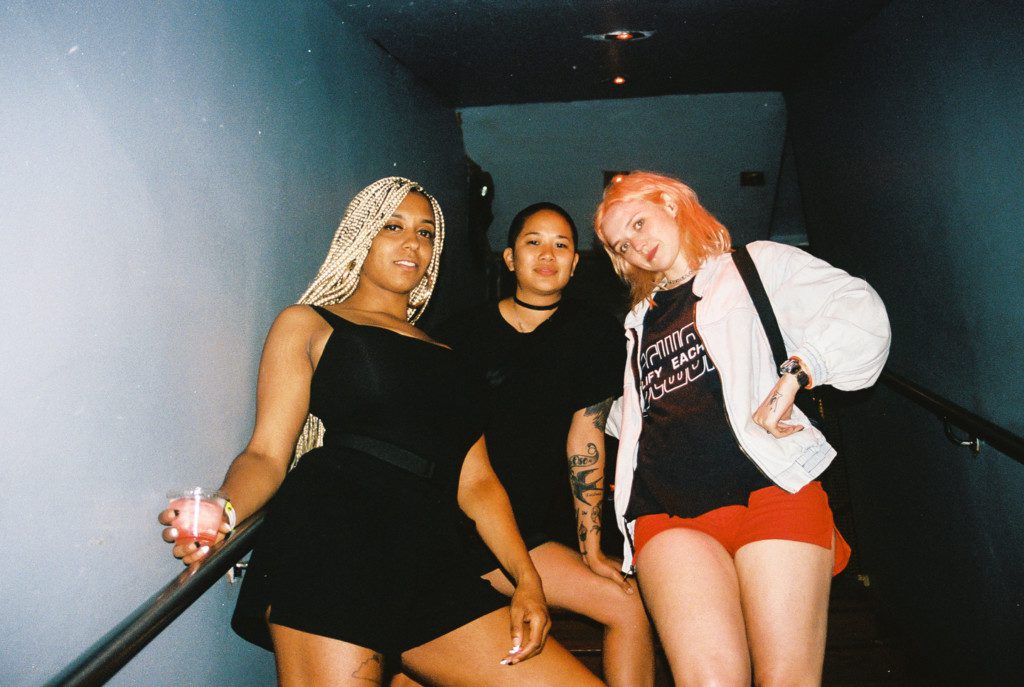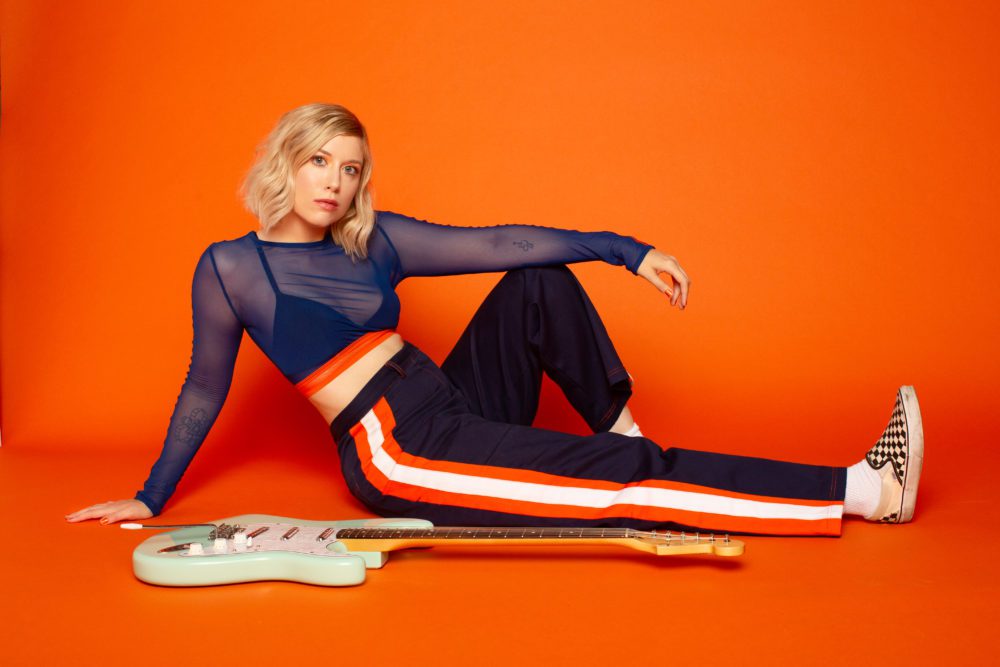

Los Angeles-based nondenominational megachurch Mosaic has a storied history in how it handles LGBTQ+ issues. Many queer individuals have professed an inviting and warm environment ─ but for singer-songwriter Sarah Hollins, and countless others, the experience was downright toxic. “[My friends and I] personally witnessed or experienced homophobia, lack of inclusivity, and ostracizing from members within the church and felt obligated to speak up about it,” the New Jersey native tells Audiofemme.
Last summer, Hollins participated in an episode of Refinery29’s “State of Grace,” a series which analyzes faith and identity. She was not publicly out at the time, but the decision to bare her heart on-camera is truly an act of bravery. “It was honestly really terrifying, and I didn’t know how my family was going to handle it. Even though it was so scary and stressful to come out in such a public way, I’m so glad that I did it,” she says. “It kickstarted a whole year of change for me, including my first relationship with a girl that I was able to lead in my public life.”
Like so many before her, Hollins held her secret tightly in her heart for a very long time. It was a long, winding journey she needed to take, and only now has finally discovered new-found peace. “So many people – even past therapists – over the years told me that I would feel so much better once I came out and that I would feel a huge weight lifted, but the fear of coming out kept me closeted for a long time,” she offers. “I have to say, they were definitely right.”
“Obviously, it’s not always safe for everyone to come out, and I definitely recognize the privileges I had of having a support system and relatively minor pushback from my family,” she continues, “but I would really recommend coming out. I’m such a happier person, and so many people who’ve known me my whole life have told me it’s the first time they’ve seen me truly happy and joyful.”
Her new song “Starlight,” premiering today, arrives with tremendous emotional baggage. “They all said it couldn’t ever feel like this / They all said it’s only hers and his,” she sings, her voice gliding through fuzzy electric guitar. “They all said I’m dead or better off that way / If my stupid head fell in love with her pretty face.”
The first stanzas examine her deep-rooted fears of harassment and abuse, and the melancholic chords evoke her psychological anguish. While concealing her own identity, Hollins “always stood up for queer people in smaller circles, like church youth groups, but was fearful to talk about my feelings because the conversations were so hostile,” she recalls.
She recalls one example from 2009, when renewed conversation around lesbianism, as Hollins knew it, had been reignited courtesy of Katy Perry’s hit debut single “I Kissed a Girl.” “I remember, my senior of high school, a lesbian at our school cut her hair and brought her girlfriend to prom, where she wore a suit,” Hollins remembers. “That brave girl was ridiculed by most of the school, and it really shamed me and scared me further into the closet. I was too scared to explore my sexuality until college.”
Still, “Starlight” expands well beyond the scope of Hollins’ own experiences. “They all punched us on the city bus / They’d rather hurt us than let us love / They all strung us to the metal fence / Told our families they’re better off / never seeing us again,” she warbles on the third verse, referencing the 2019 London bus attack against a lesbian couple and the 1998 brutal slaying of Matthew Shepard.
“Since the first part of the song talked about my experience coming out and the homophobia surrounding that, I wanted to use the last verse of the song to show what happens to queer people in society when they experience homophobia and when our society fosters environments that perpetuate it,” she explains. “I learned about Matthew when I was 14, thanks to a local production of The Laramie Project play, and I could never forget about what happened to him, how they attacked him, tied him to a fence, and left him to die. I wanted to use an incident from the ‘90s and an incident from the past few years to show how the queer community is still experiencing violence and hatred just for being themselves.”
Hollins wrote “Starlight” last September. At the time, she and her girlfriend had been planning holiday travel for Thanksgiving but soon discovered the family members hosting dinner were outright homophobic. “I didn’t want to subject my girlfriend and I to their hatred. The song sort of poured out of me and helped me work through my feelings about their homophobia – and some of the internalized homophobia and shame I had held in for years,” she says. “It helped me talk about how I was feeling at the time about my family, the church, and church communities I had left behind, and it helped me look back at how I’d always been closeted, even from a very young age.”
Musically, the four-minute song reframes classic ‘80s guitar tones (think The Cure and Springsteen), often made through a JC-22 amp, for a queer new context. “Those tones have been typically used for a lot of straight male stories, especially throughout the ‘80s. I think it’s fresh to use those tones to tell a queer story and prove that a song about queer people can be just as anthemic,” she says. “We have so many queer ‘bops’ and songs that are used to party at Pride, and while those songs are great and really help our community feel bright and joyful, I think it’s also useful to have cathartic songs that let us cry and talk about the hardships surrounding being queer.”
With guitarist and friend Taylor LeBowe, Hollins was able to flesh out her initial chord progression; layered harmonies and grander guitars were added much later. Mark McKee joined in to engineer the song to really underscore not only the emotional thread but the rich musical depth.
As heavy as it is (and needed to be), “Starlight” is also a celebration of hope, love, and freedom. “I fell in love with my girlfriend, and our love was worth coming out for,” Hollins says. “I wasn’t necessarily able to come out for me, but I could definitely come out for her. This song is actually the first song I’ve produced myself, and it’s the first song I’ve released that talks about my bisexuality.”
“The chorus really expresses the resilience of queer people and queer love – our deep desire and call to be ourselves is something we wish for so desperately that we will sacrifice everything for the chance to be our true selves. Our love is so pure, so beautiful, so magical, so life changing, that we will risk everything for it,” she says. “We’ll risk being disowned by family members, having to live a life alone, and with no familial support, homophobia and ostracizing from society, violence and hate. It’s all worth it because our love really is true and real and right.”
Since the release of 2018’s debut EP Heartbeat, Hollins has entered a creative renaissance these days, allowing herself to “write rock and guitar based songs that really inspire me and allow me to lean on my strengths as a songwriter,” she says. “I’m not putting myself into any sort of musical box, but I’m also learning which tools and paintbrushes really feel more like my signature or go-to sonic aesthetic.”
Another new, as-yet-unreleased song called “Catholic Guilt” leans more funky but still feels like a natural extension of her voice. “I’ve gotten a lot better at guitar over the past few years, and I’m really excited to utilize it as a foundation for these new songs I’m working on,” she says. “I think it’s really exciting to hear more and more music made by people using real instruments in a room together. Those organic elements feel so much more exciting and are way more interesting to hear people use at live shows than a sea full of artists singing to backing tracks.”
In addition to her musical pursuits, Hollins recently enrolled in graduate school to earn her Masters in Library and Information Science, a decision born out of today’s troubling state of racism, bigotry, and white supremacy. “I want to find and exhaust all ways that I can be helpful to my community and to marginalized communities. I’m hoping to be able to do that through my music and through professional activism in the library field,” she says. “I think that it’s a time for everyone to ask themselves what else they can be doing for society and how they can really contribute to positive reform and change. I love writing and creating music and will continue to release my original art, but I also want to contribute in other meaningful and impactful social ways. I’m really excited to be a librarian by day and an indie-rocker by night.”
Follow Sarah Hollins on Instagram, Facebook, and Twitter for ongoing updates.
